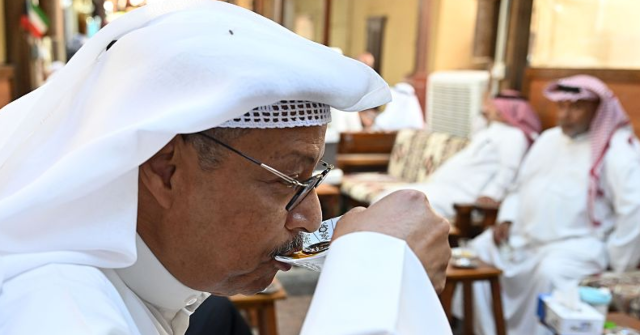Kuwait First Deputy Prime Minister Sheikh Fahad Yousef Saud a-Sabah announced on Monday that nearly 50,000 citizenships have been revoked because their papers were allegedly obtained with the assistance of “forgers.”
“All nationality files in Kuwait are under review and subject to detailed scrutiny without exception,” Fahad told Arabic-language Kuwaiti newspaper Al Qabas in an interview.
Asked if the review extended even to current members of parliament and government officials, Fahad repeated: “All of Kuwait is under review.”
Kuwait is a small country with a total population of about five million. It allows foreigners to be naturalized, but it does not allow dual nationality, so those who apply for Kuwaiti citizenship must renounce any others they possess.
Only citizens of Kuwait are allowed to own land in the country, hold the majority stake in a country, or collect the generous welfare benefits provided by the wealthy oil state.
A large number of foreigners applied for citizenship during and after the Gulf War in the 1990s, often to pursue lucrative government contracts or business opportunities.
Kuwait also has a large population of non-citizen foreign residents known as the Bidoon, a name derived from an Arabic phrase that means “without nationality.” Some of the Bidoon have lived in Kuwait for generations, waiting for citizenship paperwork to clear, or finding jobs that do not require citizenship. Others are members of nomadic tribes that did not feel they should have to apply for papers on their own ancestral lands.
There are currently believed to be about 120,000 Bidoon in Kuwait. They are generally not treated well, since they are locked out of many civil services and benefits, including drivers licenses.
Kuwait launched an aggressive campaign this year against improper citizenship that critics say has been abused to purge critics of the government. State news media has reported that the Supreme Committee for Kuwaiti Nationality, established in 2024, has stripped some individuals of their legitimate citizenship to serve the “higher interest” of the state.
The Supreme Committee nullified 42,000 citizenships in its first six months of operation, and the number is now over 50,000. Some of those targeted by the committee said they became “stateless overnight.”
Kuwait’s ruler, Emir Sheikh Mishal al-Ahmad al-Jaber al-Sabah, suspended the national parliament and established the nationality committee last year because he said democracy should not be “exploited to destroy the state.”
Neither the Trump nor Biden administrations were critical of his actions, nor were other foreign governments, perhaps out of reluctance to weaken or alienate one of the few functioning pseudo-democracies in the region.
Kuwaitis mostly went along with the citizenship purge as well until chatter on social media revealed that many of the new “stateless” were women who married Kuwaiti men and pursued nationalization. Others were people who gained citizenship after performing services for the nation of Kuwait, including a few popular entertainers.
These sympathetic targets turned a measure of public opinion against the citizenship purge, especially as stories proliferated of people who were stripped of their citizenship over minor paperwork errors and administrative mistakes.
Some of the married women who lost their citizenship had neglected to renounce their foreign identities when they became naturalized Kuwaitis, which was indeed a violation of the rules, but one that had been largely ignored until now.
“Our big thing is democracy and freedom of expression. Are we losing that now to clean the country?” a young Kuwaiti told the Financial Times in March.
The Financial Times cited suspicions from critics that the emir was “fanning nationalist sentiment to distract from Kuwait’s economic stagnation, which many argue has proved difficult to fix, partly because 80 percent of the state budget goes to social welfare and the public sector.”
In other words, as researcher Claire Beaugrand of Paris Dauphine University-PSL explained to France24 in March, the emir might be interested in “reducing state expenditure by reducing the number of citizens benefiting from the generous advantages offered by the Kuwaiti welfare state.”
The government sought to address some of the complaints about ruthless application of the citizenship laws by creating special “civil IDs” for people who had been formerly naturalized by marriage. This solution seemed to please no one, because even though the civil ID cards stated the bearer was “to be treated as Kuwaiti,” they were still precluded from owning land, owning businesses, or obtaining drivers licenses.
Some of the “suddenly stateless” complain they have been barred from accessing their bank accounts. Kuwait’s banks, in turn, are worried about absorbing huge liabilities from former citizens who were no longer able to repay their loans.
Read the full article here
